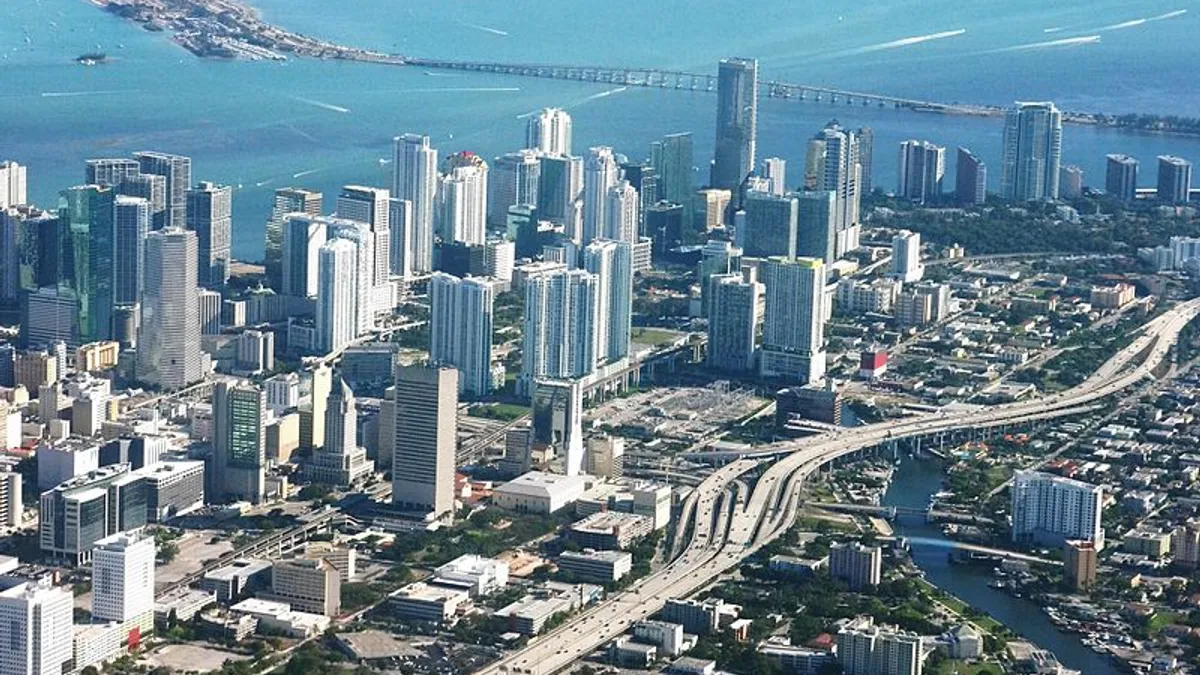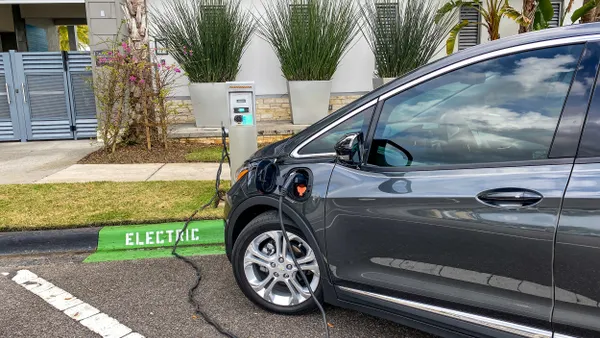UPDATE: Nov. 29, 2018: Ford Motor Company has announced the winners of its City of Tomorrow Challenges.
In Pittsburgh, iomob, a mobility-as-a-service (MaaS) company that addresses inefficiencies in multimodal transportation, and Safe Shift, an app that prioritizes safe transportation for night shift workers, will each be awarded $50,000 to test their services "in the real world." Intersection, the company behind the LinkPGH digital kiosks, was also recognized as a winner but will not receive any money.
In Miami-Dade County, Soofa and PikMyKid have been chosen as co-winners of the Challenge, each to receive $50,000 in funding for their companies. Soofa is a company that makes solar-powered "digital bulletin boards" to display transit information, while PikMyKid is a mobile platform that aims to make students' school dismissals safer.
In Grand Rapids, MI, Kaizen Health, a tech company that works to streamline access to health care transportation, was chosen as the sole winner of the Challenge. The company will be awarded $100,000 to fund a pilot program that will test its platform.
Dive Brief:
- Ford Motor Company has announced plans to crowdsource mobility solutions in Pittsburgh, Miami-Dade County and Grand Rapids, MI as part of its "City of Tomorrow Challenge."
- The automaker is seeking community input in both cities on new mobility designs, innovations and ideas for solving existing problems in the short- and long-term. The challenge program will award $100,000 to pilot innovations in the real world, with the semifinalists being announced in September.
- "We know that every city and county is unique, which is why the City of Tomorrow Challenge isn’t a one-size-fits-all approach," John Kwant, vice president of Ford City Solutions, said in a statement.
Dive Insight:
The challenge marks another step in Ford’s move from an automaker to a self-styled “mobility company," embracing not just autonomous vehicles (AVs), but also the shared economy. It acquired Chariot, a shuttle company, and has launched shared bikes in San Francisco through a partnership with Motivate.
Ford Mobility President Marcy Klevorn said in a Medium post the idea is to create an “efficient, connected and optimized transportation system” that can help optimize AVs’ “promise for a whole new approach to moving goods, distributing content and serving humanity.” Much of automakers’ work towards mobility or big data has come through partnerships with Silicon Valley, but working with cities brings in the public sector where ideas can be put to work.
Those solutions might vary for different cities and economies, which is why the challenge tries to take a specialized look at different sites. Ford noted that Miami’s population increase (the county’s population has risen 7.8% since 2010) and congestion are a particular challenge for the region, while Pittsburgh has focused on sustainability in its transportation sector.
The automaker and other government and technology partners will be in their host cities for months, gathering input from residents and experts and crowdsourcing solutions. The program can also offer a testing ground for more local ideas and initiatives that may not get the attention of a national search, with pitches able to come from anyone from students to tech mavens.
City officials will also benefit from the partnership, getting specialized data and attention for existing and new transportation systems. Both Pittsburgh and Miami have been bullish on AVs, and Ford started running tests of an autonomous delivery van on Miami streets this week. Partnerships like this will pave the way for cities to start adapting to new technology and models in mobility.











